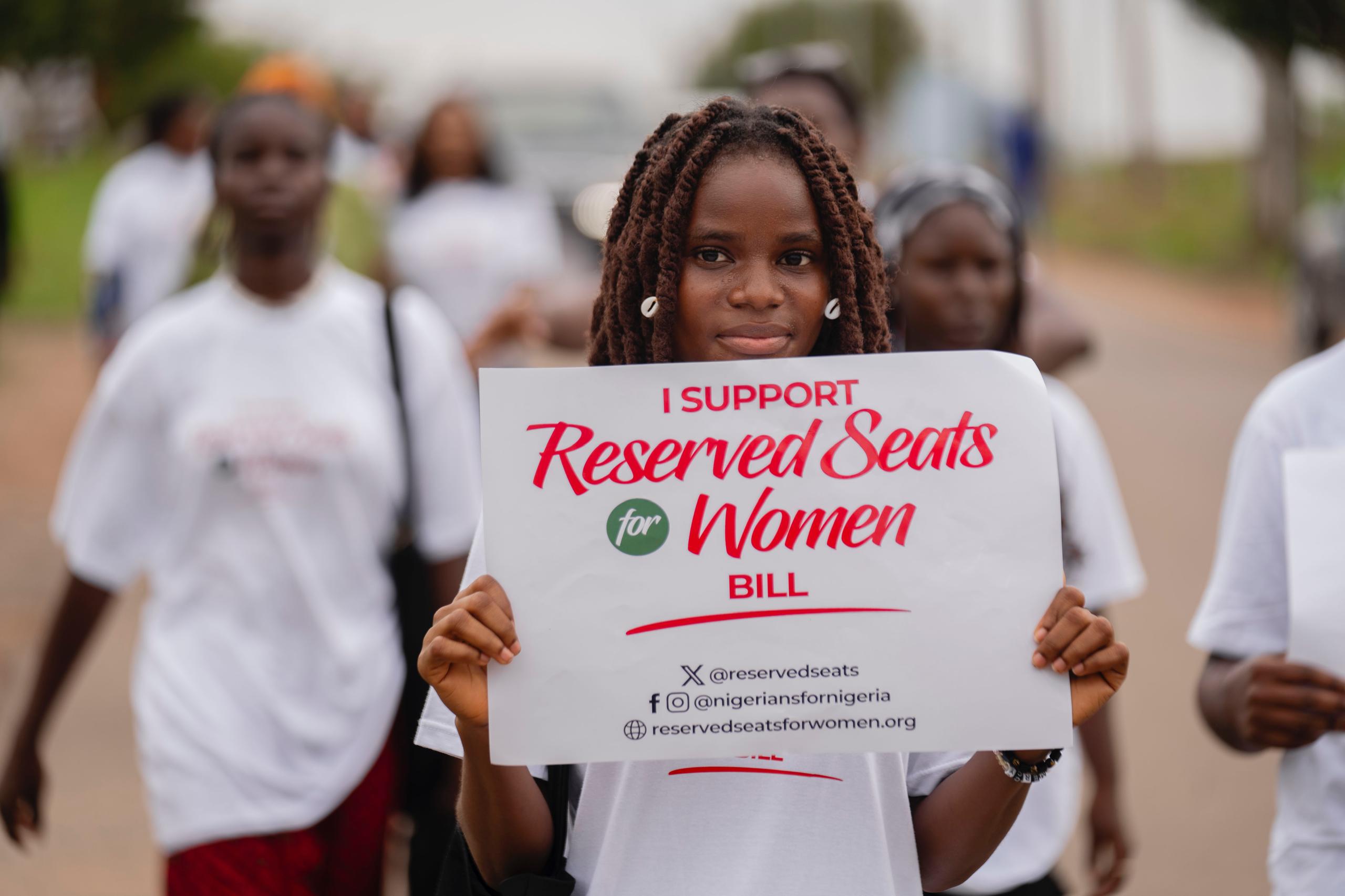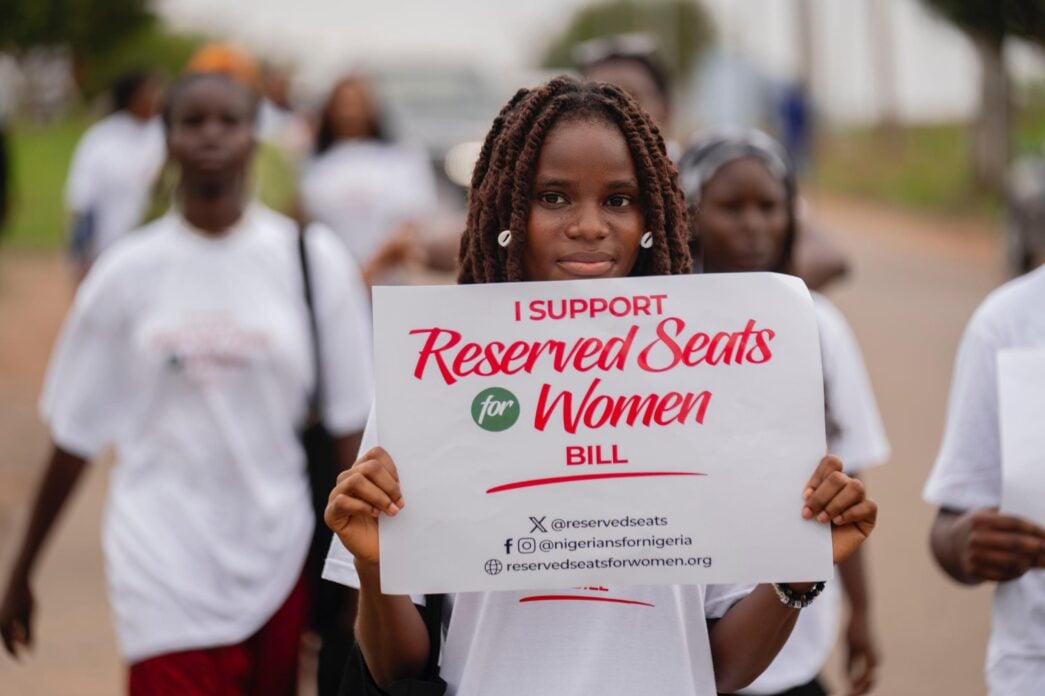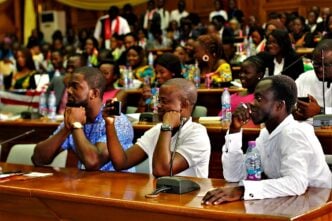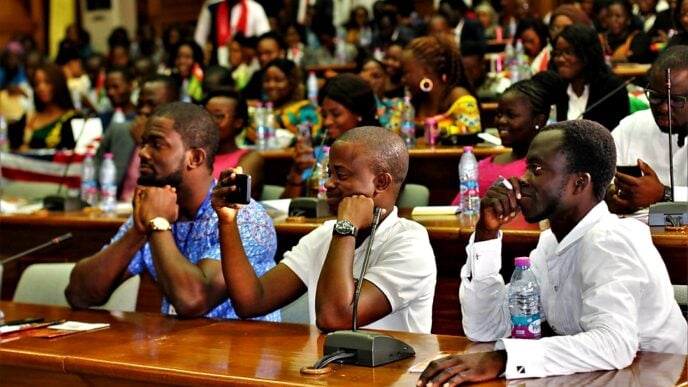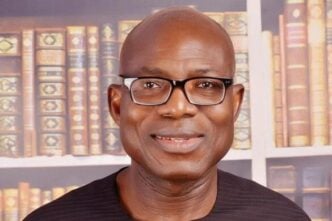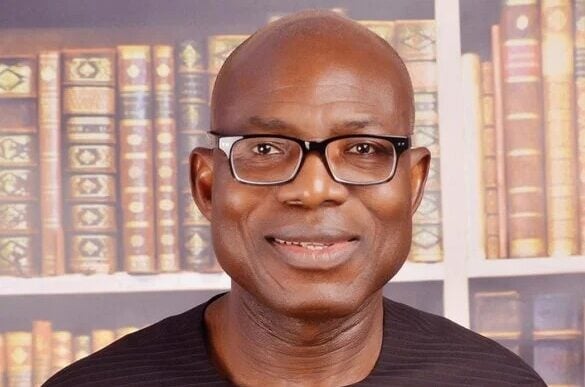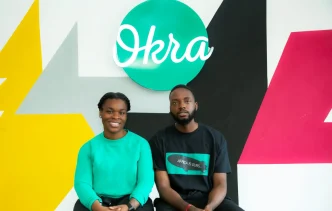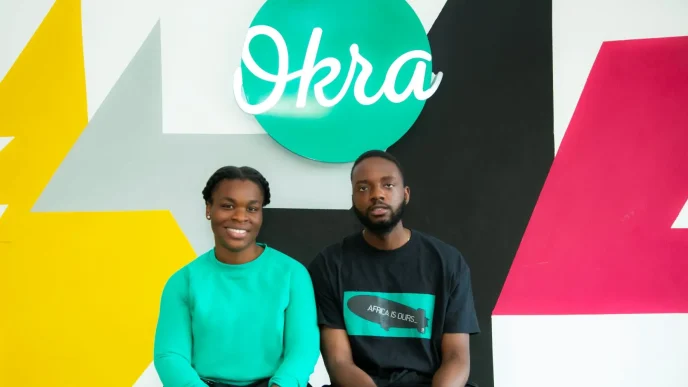A young girl holding up a sign in support of Reserved Seats for Women
BY IJEOMA THOMAS-ODIA
Nigeria is on the verge of a democratic breakthrough. Once seen as aspirational, the Reserved Seats for Women Constitutional Amendment Bill is now gaining unstoppable momentum, powered by a diverse coalition of voices from across the six geopolitical zones and backed by growing political will at the highest levels.
This week’s Senate Zonal Public Hearings have brought rare consensus: government, civil society, and everyday Nigerians standing in unity for a more inclusive political future. At the centre of this movement is a broad, nonpartisan coalition including the TOS Foundation, gender advocates, traditional institutions, and grassroots civic groups, all playing distinct yet complementary roles.
Speaking after the hearings, Chief Executive of TOS Foundation, Osasu Igbinedion Ogwuche said, “This is not just a gender bill, this is a sovereignty bill. We’re not adding seats. We’re restoring balance.”
In what many described as a defining moment, Senate President Godswill Akpabio publicly reaffirmed his commitment to the bill during the South-South hearing, calling it “an idea whose time has come.” Senators from across party lines in four of the five zones observed echoed this sentiment, marking a shift from cautious support to resolute consensus.
Advertisement
“Women are underrepresented not by chance, but by design. This amendment gives us a chance to redesign our democracy,” noted one senator from the Southwest.
The hearing in the North-West was respectfully postponed due to the passing of elder statesman Alhaji Aminu Dantata, but is rescheduled and expected to continue the trend of strong engagement.
What stood out across the zones was the diversity of support from traditional rulers and First Ladies to youth-led movements and rural women’s groups. At the Jos hearing, a young woman representing a rural coalition captured the mood with her words: “We no fit dey clap with one hand. This bill na the second hand Nigeria’s democracy needs.”
Advertisement
Across boardrooms and marketplaces alike, the demand for structural reform is becoming impossible to ignore.
Earlier this week, a joint communiqué was released, signed by the Nigeria Governors Forum (NGF), the Governors Spouses Forum (NGSF), the deputy speaker of the House of Representatives, and TOS Foundation, reaffirming unified support for the bill. The statement, published in five national dailies, marks a high point of elite alignment.
The campaign’s success so far reflects years of groundwork by Nigeria’s rich civil society ecosystem. Organisations like WRAPA, Nigerian Women Trust Fund, Yiaga Africa, WIPF, and others have championed women’s political participation long before constitutional reform became part of the national conversation.
“This isn’t just an advocacy win. This is a template for how national reform should happen,” said Ogwuche. “And every group that brought us to this point deserves to be celebrated.”
Advertisement
More than a legislative effort, the Reserved Seats Bill is now viewed by many as a generational opportunity to restore balance in Nigeria’s democratic architecture. With the country still among the lowest globally in female political representation, the passage of this bill would be the most significant inclusion-focused constitutional amendment since 1999.
TOS Foundation, through convenings, grassroots mobilisation, and coalition-building, has been described as the “sovereign scaffolding” that enabled this current wave of unity.
“This is what it looks like when civil society steps into sovereignty. We’ve crossed the threshold of possibility. Now, it’s about legacy,” Ogwuche added.
Advertisement
Views expressed by contributors are strictly personal and not of TheCable.
